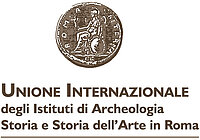2022-2026 RESEARCH AGENDA AND SCIENTIFIC PROGRAMMES
At the École française de Rome, scientific policy is laid out in a multi-year development contract. Policy covers the École française de Rome’s areas and geographical regions of expertise: archaeology, history, and social sciences, in Italy and the Central Mediterranean, Maghreb, and the countries bordering the Adriatic Sea.
Supported scientific programmes are structured into six theme-based axes:
- Structural Programmes, lasting five years and approved by the Scientific Council (2022-2026). Based on expertise and proposals from the administration, the École française de Rome Scientific Council selected twenty-six structural programs for a five-year term, commencing on 1 January 2022 and integrated into the institution’s five-year contract.
- "Impulse" Projects (2020 call)
- Programmes with Allocated Resources
The Assistant Director are responsible for supervising actions and projects within each thematic axis.
Shorter-term scientific initiatives are also welcome upon submission to the Committee for the Coordination of Scientific Policy, pursuant to approval by the Scientific Council at the French School of Rome.
2022-2026 SCIENTIFIC AGENDA
Scientific policy research support mechanisms are structured to prioritize six thematic axes:
- Maritime Spaces, Coastlines, Insular Environments
- Creation, Heritage, Memory
- Populations, Resources, Techniques
- Territories, Communities, Citizenship
- Beliefs, Practices, and Religious Institutions
- Italy in the World
Axis 1 – Maritime Spaces, Coastlines, Insular Environments
This axis examines the forms and modalities of anthropization in all aspects of coastal and insular spaces, encouraging cross-discipline input and approaches spanning archaeology, history, the social sciences, environmental sciences, and marine sciences. How do societies, at all spatial and temporal scales exploit, appropriate, contest, and imagine their liquid expanses, the various seas that make up the Mediterranean, and their terrestrial boundaries? The sea has played a leading role in shaping social constructs as a space of separation and connection, borders, the movement of goods and people, dominion and conflict. Starting from Mediterranean habitability and how it has evolved over time, programmes in this axis conduct original research at various scales, from local communities to the dynamics of globalization, encompassing maritime societies and economies, maritime professions, conflicts of use and legal constructs; ecosystems, marine resources, and naturalistic or cartographic knowledge; the coastalization of populations and activities, coastal developments, port structures; and landscape, aesthetics, and the emotional aspects of maritime borders.
Programmes structurants 2022-2026
-
ISOLE-STORIA. Archeologia e ambiente delle “isole di storia” del Tirreno: il caso di Ischia. Ricerche multidisciplinari per la ricostruzione delle risorse e dei networks mediterranei nel corso dei secoli
-
GOUVILES. Gouverner les îles : territoires, ressources et savoirs des sociétés insulaires en Méditerranée (XVIe-XXIe siècle)
-
VILLAE-ADRI. Villae et territoires littoraux et insulaires en Adriatique orientale (Istrie – Dalmatie) à l’époque hellénistique et romaine
Projets financés par le Conseil Européen de la Recherche (ERC)
-
PRAWN. Punic and Roman Ancient Warfare of the Naval Battle of Egadi
-
URBAPORT. Exploring the Urbanism of Roman Mediterranean Ports: from iconographic data to 3D reconstruction
Axis 2 – Creation, Heritage, Memory
The programmes in this axis focus on artistic, cultural, archival, linguistic, industrial, ecological (etc.) material and immaterial heritage within each particular historical context, addressing that heritage’s creation and preservation. Discussions centre around the question of transmission and, consequently, tradition, for example, philological tradition. The axis embraces conflict, endangerment, and the destruction of works, heritage, and aids to remembrance. The themes explore in this axis over the long term are: practical and aesthetic aspects of creation, their social significance, the establishment of heritage, “archiving”, preservation, and promoting heritage (e.g., architectural heritage), as well as related legal issues, from artistic creation in antiquity to past and contemporary utilization of heritage, encompassing the spheres of politics and tourism.
Programmes structurants 2022-2026
-
CARRACCI CONSERVART. Carracci ConservArt. Visualiser et comprendre la Galerie des Carrache à travers sa fortune critique, sa conservation et ses restaurations. XVIIe-XXIe siècle
-
COPIESDIDACTIQUES. Copies didactiques. Les supports à l’enseignement de l’archéologie et de l’histoire de l’art antique (grec, étrusque, romain) en France, Grèce et Italie entre 1795 et 1945
-
CULTURE-SCRIBALE. Culture scribale fragmentée. Vestiges des manuscrits hébreux en Italie – paléographie et histoire du livre
-
DIPLOMA. DiploMA. Diplomatics in Mediterranean Area
-
MEDMUS. Méditerranée(s) musicale(s) : Techniques, circulations et représentations – XIXe-XXIe siècles
-
SPAZIDENTITA. Spazialità materiale e immateriale dell’italianità dalla Repubblica Cisalpina al Fascismo: territori, città, architetture, musei
Projets Impulsion
-
COMPART. Constructions missionnaires jésuites des patrimoines arméniens et turcs : un siècle d'histoire (1881-1981)
-
PROVENANCES. Redonner une provenance aux images. L’exemple de la Grande-Grèce pour une iconographie en contexte grâce aux sources documentaires (1734-1922)
Projets financés par l'Agence nationale de la Recherche (ANR)
-
ANR CARRACCI CONSERVART. Carracci ConservArt. Visualiser et comprendre la Galerie des Carrache à travers sa fortune critique, sa conservation et ses restaurations. XVIIe-XXIe siècle
-
ANR ARTERM. From the Italian model to the emergence of a terminology of French artistic heritage (16th-17th centuries)
Axis 3 – Population, Resources, Techniques
This axis considers populations as age and gender cohorts in terms of access to resources and the impact of a wide range of technical practices, ranging from agricultural to medical, accounting, industrial, logistical, etc.. In this axis, the key spheres are health, ageing, mortality, nutrition, subsistence, the role of markets, and people’s relationship with their environment, especially in rural areas. Among other factors, it considers the history of human relations with that particular environment, the effect of living conditions in pre-industrial societies characterized by long-term prevalence of a subsistence rural economy, as well as concerns about the health status of populations in the present and future, and in the context of demographic growth and environmental degradation – all questions that continue to challenge humanity’s food making and supply capabilities.
Programmes structurants 2022-2026
-
PALEO. L’Italie paléolithique : peuplement et traditions techniques
-
ARGENTARIA. Miniere, minatori e ambiente nell'Iglesiente (Sardegna, XII-XIX secolo)
Projets Impulsion
-
La richesse de l’Église. Indicateurs économiques d’une institution universelle (Sud de l’Europe, XIVe-XVe siècles)
Projets financés par l'Agence nationale de la Recherche (ANR)
-
FISTULAE. Le marché du plomb romain : ressources, organisation, acteurs
-
PSCHEET. Pestes et sociétés humaines : émergence, évolution et transformations bio-culturelles
-
SAHYLOR. Salubrité, Alimentation, HYgiène : les Latrines d'Ostie, port de Rome
Axis 4 – Territories, Communities, Citizenship
This axis continues and renews the tradition of studying forms of collective belonging, focusing on practices, representations, normative mechanisms (legal in particular), and the spatial. Researchers will explore modes of civic and political participation in ancient and contemporary societies, spanning categories, boundaries, and limits of citizenship (i.e. gender, hierarchies, exclusion, and deviation), examining property regimes, scrutinizing inequalities, solidarity and, in its various manifestations, charity and social protection. Additionally, the axis looks into the co-presence of diverse populations and exchanges and conflicts that apply to them, including interactions between majorities and minorities. While the urban environment is a crucial feature, it is by no means exclusive; such approaches are applicable at all scales for analyzing transformations of space, actors involved, and the materiality of change.
Programmes structurants 2022-2026
-
APOLLONIA-SIRIS. Apollonia d’Illyrie et Siris-Héraclée de Lucanie. Archéologie comparée de deux trajectoires historiques complexes entre la Grèce et Rome (VIIe siècle avant J.-C. - IVe siècle après J.-C.)
-
JPOL. Des Juifs en politique dans l’Italie de la longue Renaissance (XIIIe-XVIIe siècles) : pratiques, discours, modèles
-
SUFETULA. Habiter la ville en Afrique antique : archéologie et histoire urbaines à Sufetula (Sbeïtla, Tunisie)
-
IOL. Ignobilia Oppida Lucanorum (IOL) : « Les villes sans renom des Lucaniens »
-
MONOM. La monnaie dans l’Occident méditerranéen
-
MEGA. Mégara Hyblaea : recherches dans la zone de l’Arenella
-
PAX-NORMANNA. Pax Normanna. Conquérir, pacifier, gouverner dans les mondes normands, IXe-XIIe siècle
-
KOMANI. Peuplement et territoires dans l’occident Balkanique (VIe-XVe s.). Komani, Sarda et Lezha
-
REPENSER-10E. Repenser le Xe siècle au prisme des territoires : régulations et résistances dans une Europe en reformation (870-1000)
-
VILMOUV. Villes en mouvement. Mobilités et recompositions socio-spatiales dans les espaces urbains de Méditerranée centrale (Italie, Malte, Tunisie)
Projets Impulsion
-
DEMOPOL. Democratizing public space and policing. Transitions, circulations and contestations in Southern Europe from the return of democracy to the 1980s (Portugal, Spain, France, Italy, Greece)
-
Italian Power. The Civic Elites of Roman Italy, 338 BCE-305 CE
Projets financés par l'Agence nationale de la Recherche (ANR)
Axis 5 – Beliefs, Practices, and Religious Institutions
The study of religious phenomena, a topic of enduring significance to EFR research, moves in multiple directions, the priority being the materiality and visibility of religions and their inscription in physical and social space. This may include the study of places of worship and religious landscapes, as well as forms of ritual and devotion, with a focus on gesture, image, word, or writing. A second area of interest in this axis is the legitimation and regulation of religious practices, beliefs, or norms. This may encompass the development of doctrines, narrative canonization processes, or the construction of religious expertise and knowledge. Among other aspects, it encompasses a reflection on the phenomena of appropriation, transmission or rejection, and on understanding how, in past or contemporary societies, different institutions and actors have defined and delimited the religious sphere in relation to other sources of power or normativity. Last, the economics of the sacred is an aspect worthy of special consideration.
Programmes structurants 2022-2026
-
IRIS. Image et rituel dans l’Italie et la Sicile antiques
-
CG-NICOPOLIS. Le paysage religieux des villes balkaniques et de leurs abords durant la période byzantine
-
PORTA NOCERA. Pompéi, nécropole de Porta Nocera. Un laboratoire d’étude d’une tradition funéraire
-
SORORES. Sorores. Les religieuses non cloîtrées en Europe du Sud, XIIe-XVIIIe siècle
Projets Impulsion
-
Dispensatio. Histoire et sociologie d’un dispositif d’exception (Moyen Âge – XXIe siècle)
-
Ethiokongrome. Explorer les connexions entre les royaumes chretiens d'Ethiopie et de Kongo et la Méditerranee médievale et moderne
-
ROTAROMA. La rote romaine, tribunal civil pontifical et juridiction transnationale, des années 1520 jusqu’au milieu du XIXe siècle
-
CULTURE. L’écriture dans les lieux de culte en Italie et en Gaule entre le IVe s. a.C. et le IIe s. p.C.
-
THYSDRUS
Projets financés par l'Agence nationale de la Recherche (ANR)
-
DispRel. Dispenser. De la flexibilité dans les normativités religieuses des sociétés européennes (Moyen Âge – XXe siècle)
-
MONACORALE. Histoire et archéologie des monastères et des sites ecclésiaux d’Istrie et de Dalmatie (IVe-XIIe siècle)
-
PredicMO. Les grammaires de la prédication : lexique, cartographie, mise en scène (Moyen-Orient, XXe-XXIe siècles)
Projets financés par le Conseil Européen de la Recherche (ERC)
-
ROTAROM17. Delivering justice on a transnational scale in Europe. The Roman Rota and the enforcement of a legal culture of negociation (c. 1560-1700)
-
HUMANE. Humanitarian Aid, Politics and Religion: A Transnational History of the Catholic Near East Welfare Association from the 1920s to the present day
-
ROTAROM17. Rendre la justice en Europe à l’échelle transnationale. La Rote romaine et la promotion d’une culture juridique de la négociation (v. 1560-1700)
-
SIGN-IT. Signacula in Roman and Post-Roman Italy: marking religious and cultural identity (2nd-11th c. CE)
Projet franco-allemand financé par l'Agence nationale de la Recherche (ANR) et la Deutsche Forschungsgemeinschaft (DFG)
Axis 6 – Italy in the World
Italy has played a fundamental role in successive waves of globalization, from regional Mediterranean-scale globalization in ancient times to the global Italian diaspora in contemporary times, encompassing military and cultural conquests in which Italy has served as both conqueror and conquered territory, not to mention a cultural template. This axis investigates Italy’s role in connecting different parts of the world, as well as the Italian Republic’s modern-day role in European integration, focusing on movement of people, objects, knowledge, and ideas from Italy to the rest of the world, including return- and hybridization-related effects. For this axis, one important theme is the interface between Italy and the world through ports, borders, metropolises, and other nodal points within various regional, continental, and global networks under study. Crucially, the School is keen to leverage Italian documentary heritage, shedding light on past and present social phenomena worldwide, and highlighting Italy’s central role in documentary production.
Programmes structurants 2022-2026
-
DICTAMINA. Dictamina. Transcription et mise en ligne de sources inédites sur la communication épistolaire italienne médiévale et sur son influence européenne (XIIe-XIVe siècle)
-
MONDO500. Le monde dans une péninsule : espaces urbains, présences étrangères, économies des savoirs dans l’Italie du Cinquecento
-
ARCHIVESPIE12. Reconstruire le monde, les sociétés et la personne humaine (1939-58) : l’apport global des archives vaticanes
Projets financés par l'Agence nationale de la Recherche (ANR)
Programmes structurants (2022-2026)Axe 1 – Espaces maritimes, littoraux, milieux insulaires Axe 2 – Création, patrimoine, mémoire Axe 3 – Population, ressources, techniques Axe 4 – Territoires, communautés, citoyenneté
Axe 5 – Croyances, pratiques et institutions religieuses Axe 6 – L’Italie dans le monde |
Projets financés par l'Agence nationale de la Recherche (ANR)Axe 2 – Création, patrimoine, mémoire
Axe 3 – Population, ressources, techniques Axe 4 – Territoires, communautés, citoyenneté
Axe 5 – Croyances, pratiques et institutions religieuses
Axe 6 – L’Italie dans le monde
|
Projet franco-allemand financé par l'Agence nationale de la Recherche (ANR) et la Deutsche Forschungsgemeinschaft (DFG)Axe 6 – L’Italie dans le monde
|
Projets européens (Horizon 2020)Axe 1 – Espaces maritimes, littoraux, milieux insulaires
Axe 5 – Croyances, pratiques et institutions religieuses |
Projets ImpulsionAxe 2 – Création, patrimoine, mémoire
Axe 3 – Population, ressources, techniques
Axe 4 – Territoires, communautés, citoyenneté
Axe 5 – Croyances, pratiques et institutions religieuses
|



